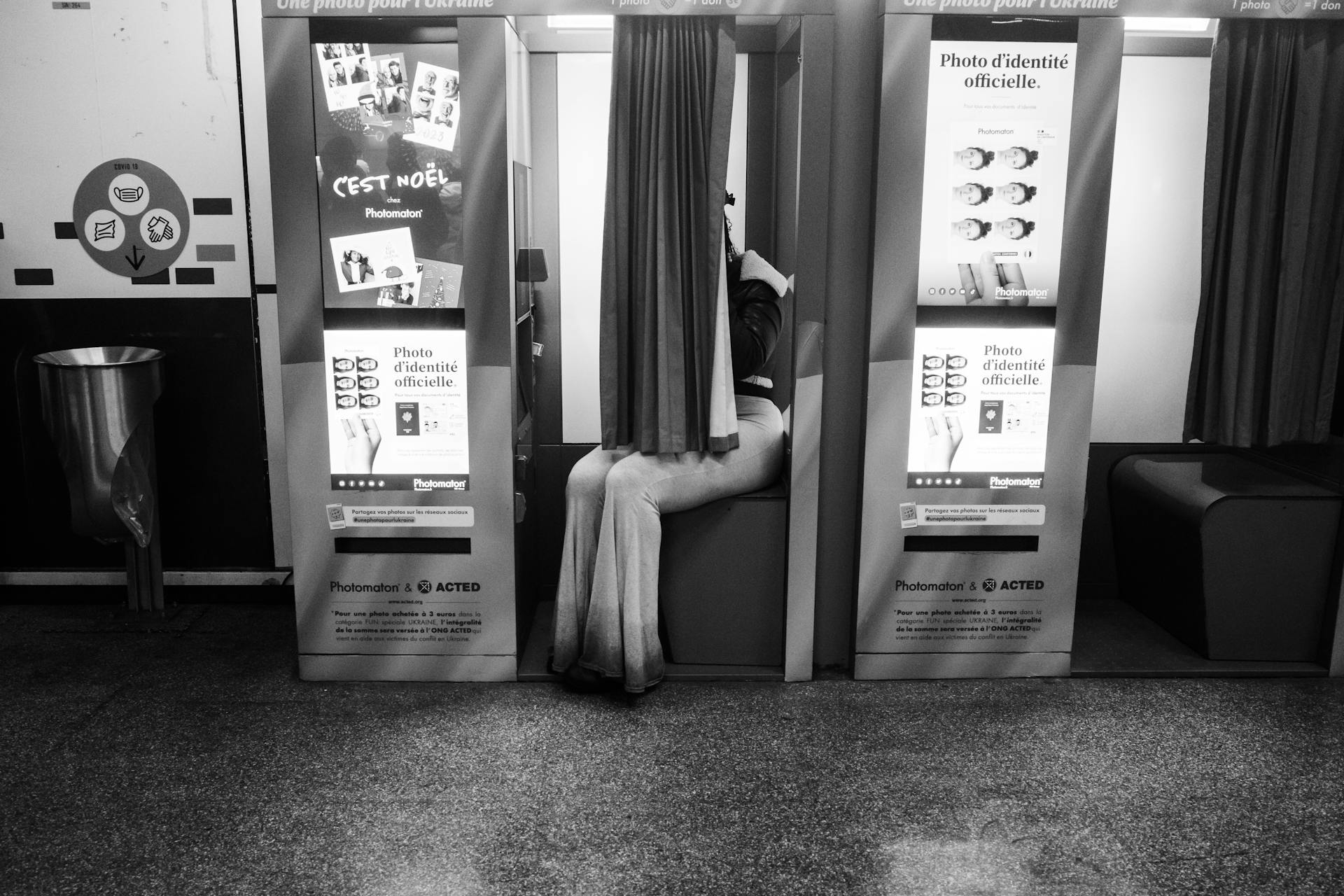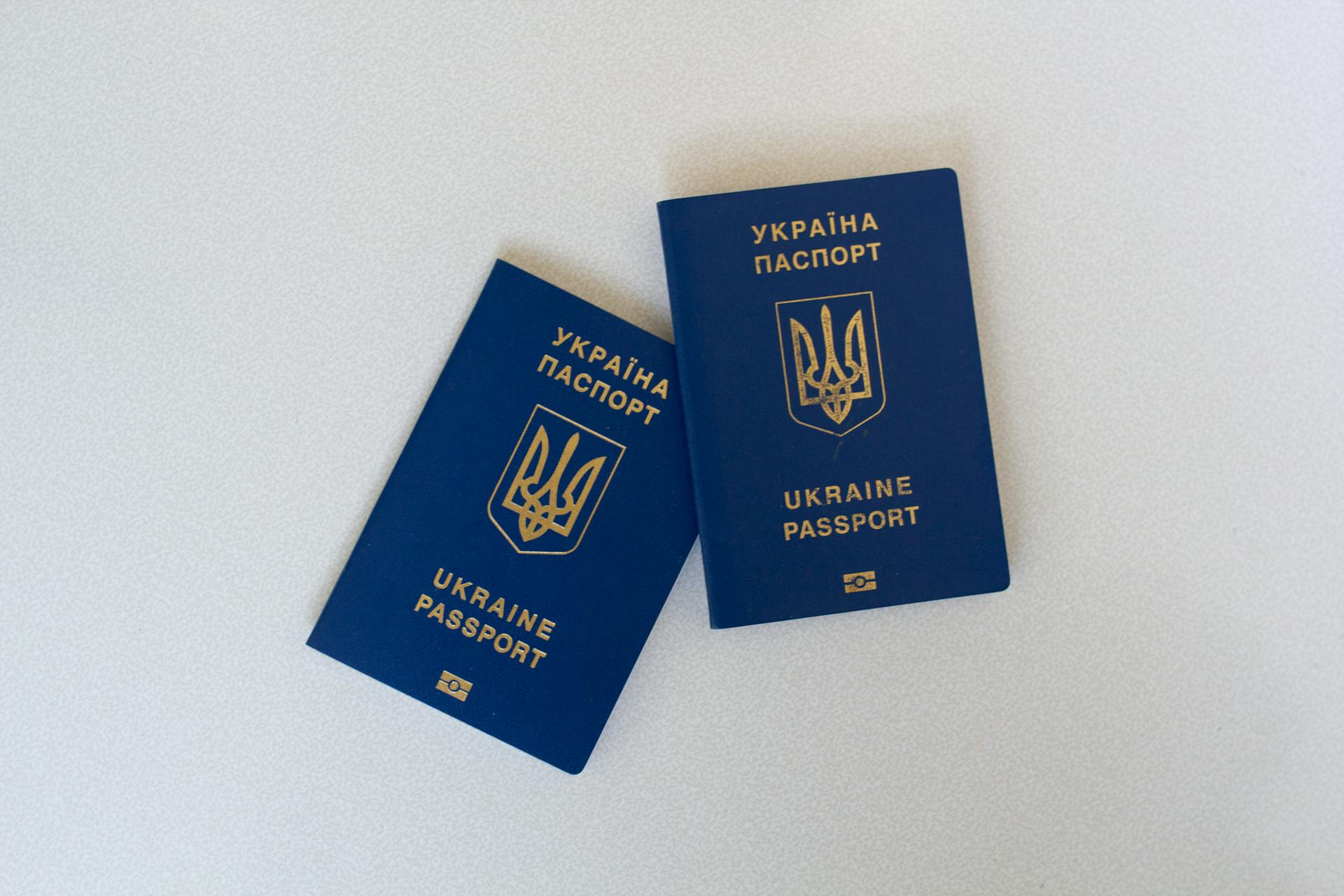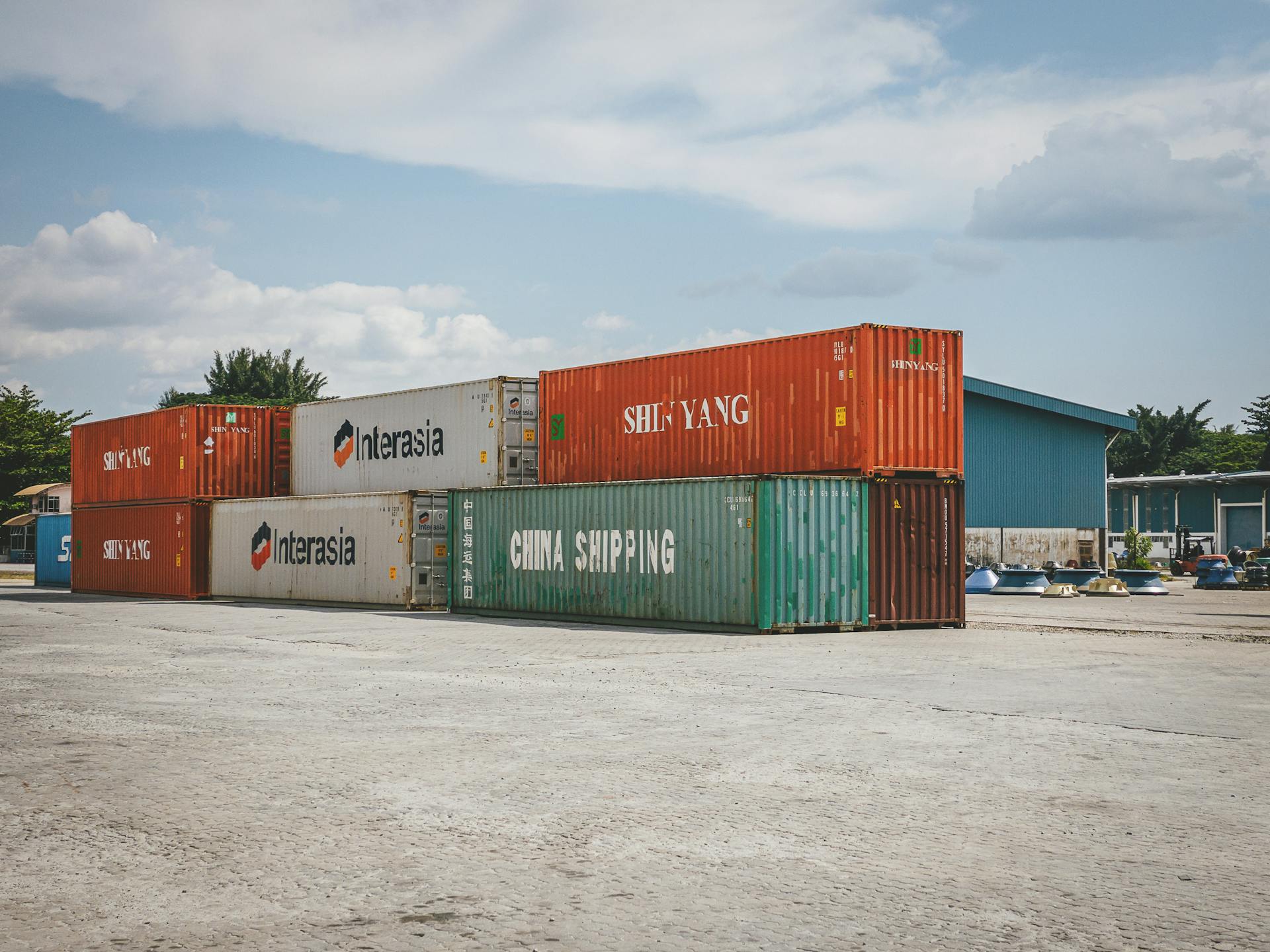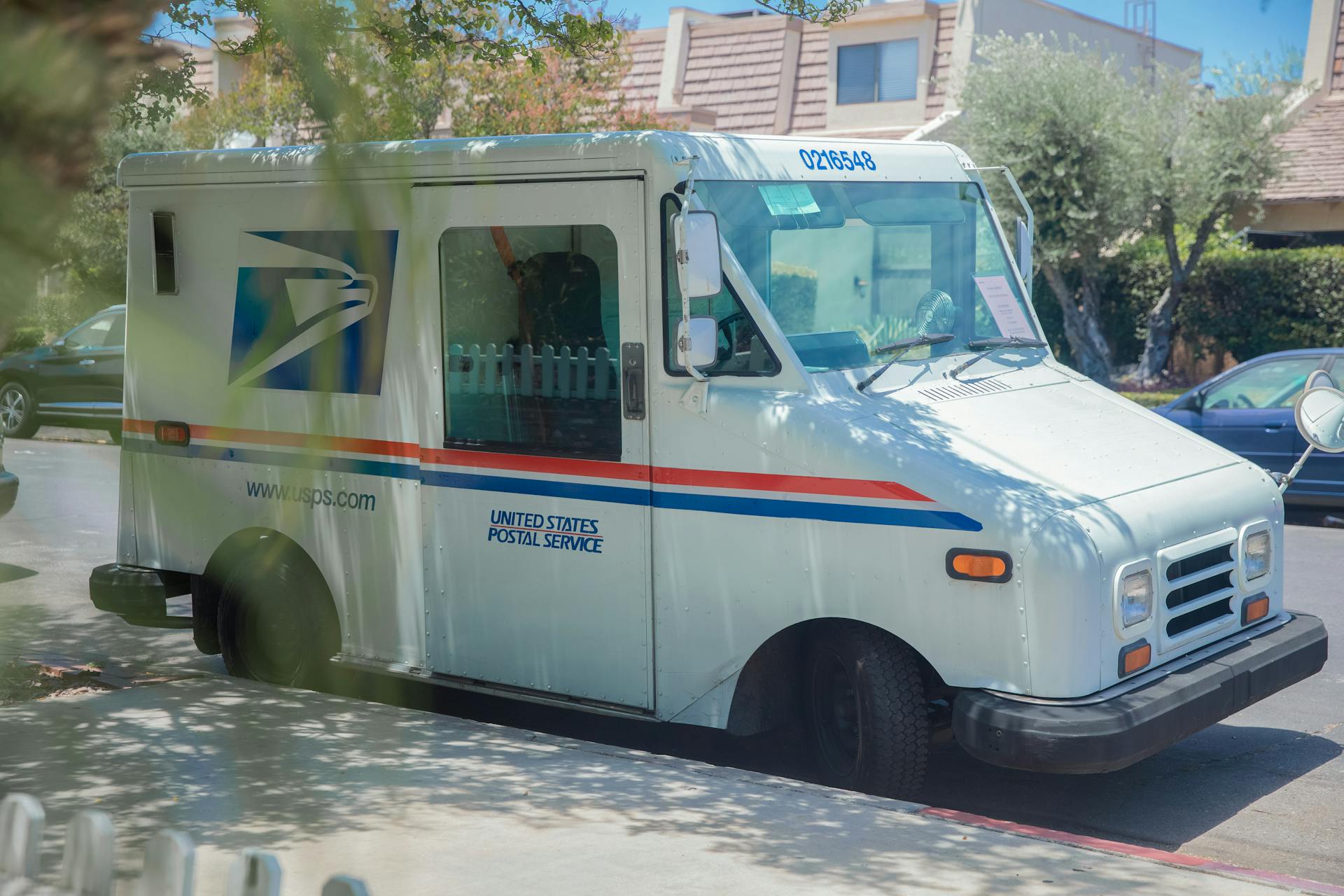
As an international traveler, navigating customs and border control can be overwhelming. A Carnet de Passages en Douane (CPD) is a document that simplifies the process, allowing you to bring your goods into a foreign country temporarily.
A CPD is not a customs declaration, but rather a guarantee that you'll pay duties and taxes on the items you bring in. This document is usually issued by a national customs authority or a bonded carrier.
To obtain a CPD, you'll need to provide detailed information about the goods you plan to bring into the country, including their value, weight, and description. You'll also need to pay a deposit, which will be refunded when the goods are returned to their country of origin.
A CPD is valid for a specific period, usually up to 12 months, and can be used for multiple trips.
What is Carnet de Passages en Douane
The Carnet de Passages en Douane is a booklet that allows you to temporarily import a vehicle into multiple countries. It comes in different sizes, with 5, 10, or 25 pages.

Each page is divided into three sections: the lower section is removed by Customs on entry, the middle section is removed on exit, and the top section is stamped once on entry and once on exit.
A country re-visited during the return journey will require a new page to be stamped. This ensures that you comply with the temporary import conditions and avoid any possible future import charges.
Countries not covered by a particular Carnet are noted in a list of exclusions on each page and back cover of the booklet. It's essential to be aware of these exclusions to avoid any issues during your travels.
By issuing a Carnet, you become directly responsible for the payment of customs duties and taxes if the regulations concerning temporary import are infringed. This means you need to take careful note of the terms and conditions.
How to Obtain and Use
To obtain a Carnet de Passages en Douane, you can get it from your national automobile association. In France, it's the Automobile Club, Association Française des Automobilistes that issues this document.

The conditions for obtaining the Carnet vary from country to country. In France, for instance, the owner must pay a deposit, which is 100% of the vehicle's value, with a minimum of 2,500€.
The Carnet contains essential information about the vehicle or object, such as the manufacturer, model, color, engine, serial number, owner, and value. This information is crucial for customs clearance and must be carefully checked.
You'll need to carefully review the rules for using the Carnet, which are outlined on the third page of the document. The fourth page lists the countries where the Carnet is recognized.
Each Carnet has 25 or 10 pages, with each page consisting of a detachable entry and exit receipt and a non-separable matrix. The receipts contain the vehicle's details, the owner's information, the issuing association's name, and the document's expiration date.
The last page of the Carnet is the Certificate of Location or Certificat de Présence, which is necessary for document regularization if the Carnet is not returned with the necessary customs stamps.
Temporary Import Conditions

Temporary import conditions can be quite strict, so it's essential to understand them before using a Carnet de Passages en Douane.
A temporarily imported vehicle cannot be sold, loaned, abandoned, hired, or otherwise disposed of without the prior agreement of the local Customs authority and CARS.
You'll need to get permission from the local Customs authority and CARS if you want to extend your Carnet, which can be a bit of a hassle.
The Carnet holder is responsible for ensuring the Carnet is properly endorsed at each border crossing, so make sure to keep track of those stamps.
If you're planning to travel to a country where you normally reside or one that's specifically excluded from your Carnet, you won't be able to use it there.
Here are the main conditions of temporary import in a nutshell:
- A temporarily imported vehicle cannot be sold, loaned, abandoned, hired, or otherwise disposed of without the prior agreement of the local Customs authority and CARS.
- Carnet can only be extended with the prior agreement of the local Customs authority and CARS.
- The Carnet holder is responsible for ensuring the Carnet is properly endorsed at each border crossing.
- The Carnet cannot be used in any country where the holder is normally resident or in any country specifically excluded from that Carnet.
Fees and Requirements
The Carnet de Passages en Douane (CPD) is a valuable tool for international travelers, but it's essential to understand the fees and requirements involved.

The CPD application fee is typically around $25-$30, depending on the issuing authority.
To obtain a CPD, you'll need to provide a valid passport, a completed application form, and proof of ownership or rental agreement for your vehicle.
The CPD is usually valid for one year from the date of issue.
You'll need to pay a deposit of $100-$200, depending on the country, to secure the CPD.
Renewal and Discharge
If your carnet arrives at expiration and your journey continues, contact CARS at least 6 to 8 weeks before the end of the current carnet's validity. This is because some countries require a prior customs authorization before issuing a new carnet.
To obtain a new carnet, complete a new form and send it to CARS, dated, "read and approved" and signed. The deposit will be kept, and you'll need to pay an additional deposit if the current deposit is insufficient or if you plan to visit countries not covered by the current CPD.
Fees for renewing a carnet (excluding Egypt) are 380.00 € for non-members and 250.00 € for members. There's an additional fee for sending the carnet to France by registered mail (9.18 €), and you'll need to provide a local address for international shipping.
Caution à Déposer au Nom du Titulaire

To renew your vehicle's documentation, you'll need to deposit a caution in the owner's name. The caution amount is calculated to cover customs or tax fees that may be required by the countries you visit.
The caution amount varies depending on the countries you plan to visit. For most countries, the caution is 100% of the vehicle's current market value, with a minimum of €2,700.
If you're planning to visit Iran, Pakistan, or India, the caution is higher, representing 150% of the vehicle's value, with a minimum of €5,000.
You can pay the caution by either depositing a certified bank check in the Automobile Club Association's name or by transferring the funds to their bank account.
Here's a breakdown of the minimum caution amounts for different vehicle values:
Keep in mind that the caution amount will depend on the vehicle's current value, not its original purchase price.
Renouvellement Du
Renewal of the Carnet is a straightforward process, but it does require some planning ahead. You should contact the relevant authority at least 6 to 8 weeks before the current Carnet expires.

To obtain a new Carnet, you'll need to complete a new application form, which will be dated, signed, and approved. The existing guarantee will be kept, but you may need to pay an additional guarantee fee if the current guarantee is insufficient.
The renewal fees for the Carnet are 380 euros for non-members and 250 euros for members. There's also a postage fee of 9.18 euros in France, and you'll need to provide a local address for international shipping.
It's essential to note that the new Carnet must be dated after the previous one, and there should be no overlap in the validity dates. The old Carnet must be stamped out by customs, and the new one stamped in.
Here are the renewal fees for your reference:
Discharge
You must return the Carnet by secure post to CARS Carnet Services at The Old Airfield Site, Bury Road, Chedburgh, Suffolk, IP29 4UQ.
The Carnet will be checked to ensure it has been stamped correctly in and out of each country visited, and any refunds applicable will be returned after verification.
A Customs acknowledgement must be obtained confirming that the CPD is discharged and no duties or taxes will be due in that country as a result of the theft / loss of a vehicle.
You must also notify CARS if a vehicle is stolen or written-off during the journey, and obtain a police report as soon as possible.
A Carnet must be returned to CARS as soon as it expires, or when the vehicle has returned to the UK (whichever is sooner), unless prior contact or arrangements have been made.
Failure to return the Carnet or comply with the temporary importation regulations and procedures may result in CARS refusing to refund monies and the holder being liable for any duties and taxes applicable.
Countries and Obligations
If you're planning a trip by boat, you'll want to know which countries require a Carnet de Passages en Douane. The answer is: it depends on the country you're arriving in.
In some countries, a Carnet is necessary for boat arrivals. For example, in the Sénégal and Afrique du Sud, a Carnet is required.
Here are some countries where a Carnet is necessary for boat arrivals:
- Sénégal
- Afrique du Sud
Make sure to check the requirements for your specific destination to avoid any issues.
Sources
- https://www.carsworldwide.com/carnet-de-passage-en-douanes-cpd/
- https://atcuae.ae/cpd-carnet-de-passage/
- http://www.aci.it/il-club/soci-in-viaggio/per-chi-va-allestero/carnet-de-passages-en-douane.html
- https://fr.wikipedia.org/wiki/Carnet_de_passages_en_douane
- https://www.automobile-club.org/tourisme-et-voyages/carnet-de-passages-en-douane
Featured Images: pexels.com


